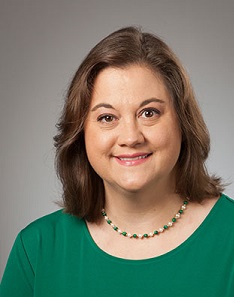Foreword by Dr. Karen L. Alexander
Family and Consumer Sciences (FCS), also known as the people-centered sciences, is rooted in critical thinking and problem solving. With the formation of the FCS profession at the turn of the 20th century, foundational leaders such as Ellen Swallow Richards applied critical thinking to resolve practical problems—the real-world challenges of her time that required thoughtful decision-making and problem-solving to address. Unlike theoretical problems, which focus on abstract concepts, practical problems involve everyday situations that impact individuals, families, or communities. These problems often have multiple possible solutions, have human contexts, and require critical thinking, reasoning, and ethical considerations to resolve effectively. Often, the practical problems are perennial or ongoing and require us to revisit and adjust our actions for optimal outcomes to help individuals and families make informed decisions about their well-being, finances, nutrition, and relationships.
As our profession has adapted over the last century, leaders such as Marjorie Brown and Beatrice Paolucci advocated for FCS professionals to embrace a critical science perspective in their work with individuals and families to resolve practical problems. Critical science moves us beyond rote problem solving and facilitates reasoning for action to tackle challenges like financial literacy, healthy living, personal wellness, and family dynamics. Individual and family life can be complicated, but through the lens of critical science, we can examine our situations, use resources and information to question our current conditions, analyze our perspectives and opportunities, and engage in dialogue to improve our lives and communities.
Cultivating Critical Thinking: Integrating Practical Reasoning in Family & Consumer Sciences is a groundbreaking textbook for the FCS profession. Prior to this textbook, foundational writings and scholarship exist in the forms of whitepapers, monographs, yearbooks, philosophical books, textbook chapters, conference proceedings and presentations, and journal articles. However, this is the first FCS textbook dedicated entirely to the integration of practical reasoning in our profession. The authors of this textbook are committed FCS professionals who recognized the need for this text to support the advancement of the profession. Further, they are committed to providing this resource as an open-access textbook so all readers may benefit from its content.
The authors were deliberate in the creation of a textbook that allows readers to engage with the content and to develop an understanding of what it means to be an FCS professional in the 21st century. Throughout the eight chapters, readers will explore the history of our profession and its roots in practical reasoning. Readers will examine the connections between practical reasoning and the Family and Consumer Sciences Body of Knowledge and are encouraged to reflect on the key philosophical tenets of the profession. Finally, readers are provided with numerous resources that support the engaging learning activities designed to hone the skills for professionals who are committed to advancing individuals and families in our society.
Embrace the opportunities to learn and broaden your perspectives. Enjoy the journey!


